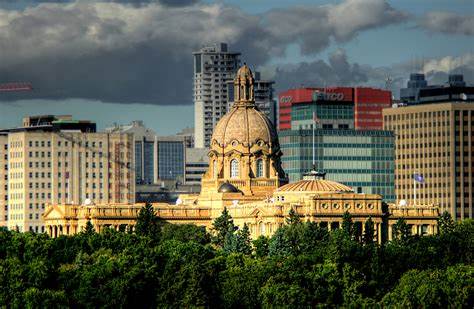In a significant legislative move, the Alberta government has proposed shifting the province’s fixed election date from May to October. The decision, encapsulated in the newly introduced Bill 21, aims to sidestep the peak season of natural calamities such as wildfires, floods, and droughts that typically occur in spring and early summer.
This legislative change would mean that instead of the currently scheduled May 31, 2027, provincial election, Albertans would head to the polls on October 18, 2027. This adjustment would place the election firmly in autumn, a period viewed as less susceptible to disruptive natural events.
The government’s rationale is firmly rooted in recent history, drawing on the devastating impacts of events like the 2011 Slave Lake fire, the widespread floods around Calgary in 2013, and the 2016 Fort McMurray fire. These incidents have underscored the challenges of managing emergency responses alongside electoral processes.
Premier Danielle Smith emphasized the need for readiness, stating, “When an emergency strikes, we need to be able to pull together quickly. With this change, we aim to ensure that elections do not overlap with the times when our resources are most strained by natural disasters.”
Bill 21, formally titled the Emergency Statutes Amendment Act, 2024, also introduces broader reforms aimed at enhancing provincial preparedness and response capabilities. Among the proposed measures is an amendment to the Emergency Management Act, which would allow the provincial government to assume greater control over local emergency efforts when necessary.
This could be activated when a local authority requests additional assistance or when an emergency overwhelms local capabilities or spans multiple jurisdictions. The amendments also call for more detailed reporting by local authorities during emergencies, covering the nature of the emergency, actions taken, and resources used.
Additionally, the bill seeks to amend The Water Act and The Forest and Prairie Protection Act to provide the government with expanded powers to manage water resources during emergencies and to enhance its authority to respond to wildfires on provincial lands, including Métis Settlements.
In contrast to the government’s position, Alberta NDP Critic for Justice, Public Safety, and Emergency Services, Irfan Sabir, criticized the bill as an overreach. Sabir argued that the legislation “shows a deep level of distrust of municipal leaders and emergency responders,” suggesting it represents an undue centralization of power and a potential extension of the government’s mandate without direct consent from Albertans.
The debate over Bill 21 follows closely on the heels of controversy surrounding another recent legislative effort, Bill 20, further highlighting the ongoing legislative and political dynamism in Alberta.
Alberta Proposes Shift in Election Dates to Autumn to Avoid Natural Disasters

In response to past emergencies during critical periods, the provincial government seeks to move election timings from spring to fall to minimize disruption.
In response to Canada's Online News Act and Meta (Facebook and Instagram) removing access to Canada's local news from their platforms, Anchor Media Inc encourages you to get your news directly from your trusted source by bookmarking this site and downloading the Rogue Radio App. Send your news tips, story ideas, pictures, and videos to info@anchormedia.ca.








